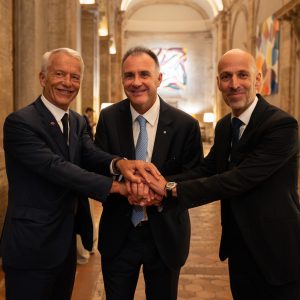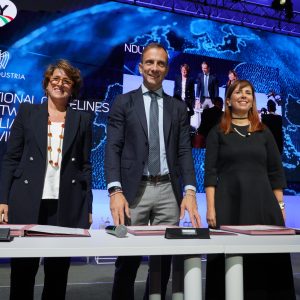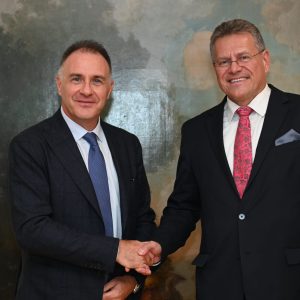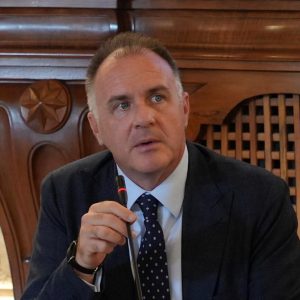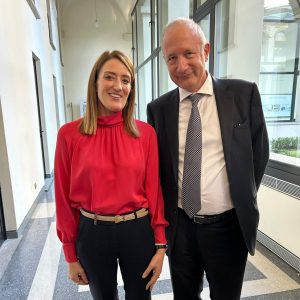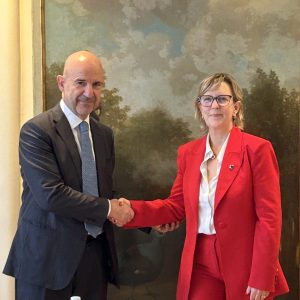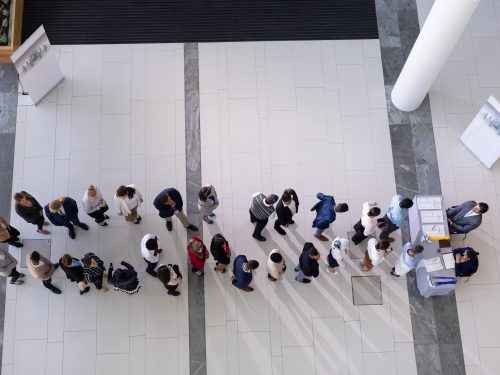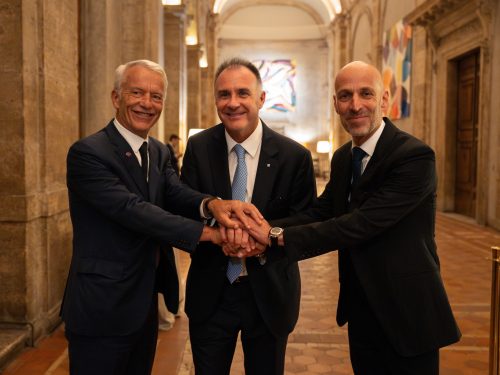News
Share on
"Europe potentially has all the characteristics to be a strong continent and withstand the pressure coming from the US and China. But to do so we need to put industry at the centre of the European agenda, through an organic and long-term industrial policy strategy. Without industry, Europe does not exist. And it is important that it is united to realise its ability to defend the values of freedom, development, inclusion'. Thus Stefan Pan, Confindustria delegate for Europe, in an interview with Il Sole 24 Ore emphasised the demands of European industries to BusinessEurope on the eve of the European Council of today and tomorrow. On the table are not only the war in Ukraine but also EU competitiveness, single market and economy, energy and migration.
Precisely in view of the EU Council, BusinessEurope - the association that brings together European business associations - has drawn up a document that identifies all the factors that keep investment away from the European Union and proposes the measures needed to change course. "According to recent data from Business Europe," said Pan, "since the US kicked off the Wrath of War, with substantial benefits for those investing in the US, Europe is losing a lot of investment. Since 2019, Business Europe has calculated that direct investment has decreased by 66% in the EU while in the US it has increased by 63%".
"We have to work," emphasised Pan, "to make Europe attractive and the best place to invest. This is the response to react to the double pressure from the US, with Wrath, and from China, which is strengthening its industry by focusing on technological innovation. The business world is making its voice heard, through a constant dialogue with Brussels, in which President Bonomi is also personally involved'.
Pan went on to emphasise the need for European industrial policy to regain the same unity it had during the pandemic: "Moving forward together is necessary, only a united Europe can provide an adequate response to the challenges we face. It is very positive that we are talking about industry, industrial policy, competitiveness. The President of the Commission had hypothesised a sovereign wealth fund, but the path taken so far is that of a relaxation of state aid constraints. This is a choice that we do not agree with because it creates asymmetries, rewarding countries that have more fiscal space. Just look at the numbers: last year 49.3% of State aid went to Germany, 29.9% to France and Italy only 4.7%'.
And on the subject of resources to feed the European sovereign wealth fund hypothesised by President Ursula Von der Leyen, he said: "We absolutely must commit to spending the funds that are already available, i.e. NRP and EU funding. In addition, we are faced with the amount of investment needed to meet the double challenge of the green and digital transition, one could draw on also to the resources of MES'..
During the interview, Pan also addressed the topic of the double environmental and digital transition and the objectives set by Europe: " If you want to achieve - said- companies must be put in a position to do so. The Confindustria study on Fit for 55, which we have just presented, shows that around 1,100 billion investments are needed by 2030. Public resources are minimal, which means that is almost all on the shoulders of private individuals. That is why appropriate action is needed, which does not create asymmetries, reasoning on all aspects of transitions. Starting with the regulatory sphere, on which certainty is needed. You cannot change the rules on the flyI am thinking for example of the packaging regulation, where reuse has now been chosen instead of recycling. A choice that displaces entire supply chains that had invested in recycling, allowing Italy to reach the EU 2030 targets a full nine years early. Not to mention failure to respect the principle of technological neutrality. Similar considerations apply to overcoming the endothermic engine: electrics were chosen, when there may have been other solutions. Now the debate has reopened, driven mainly by Italy. As Confindustria we are working with the EU institutions, contributing to the debate with analyses and concrete contributions that are often taken on board, as for example happened with the proposal to reform the electricity market'.
Finally, Pan addressed the chapter on costs involving excessive regulation and bureaucracy energyIn the US, time to market wins, in us, time to regulation. Companies have to deal with real ballast. We need to simplify the regulatory framework, avoid imposing new laws, and establish a competitiveness check, to constantly verify the state of the art'.
And on the possibility that the 2024 EU elections be a brake on open dossiers, he concluded: "They should not be because the timing of the economy does not coincide with the timing of politics. The survival of European industry and jobs is at stake".

